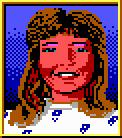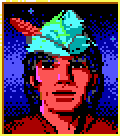Tags: Visual edit apiedit |
Tag: Visual edit |
||
| Line 19: | Line 19: | ||
In KQ7's script, there is a couple of lines of narration, but these may only appear if the game is played without voices. They seem to describe screen changes. Such as when Valanice is waiting for the winds to return with Titania, and Oberon. |
In KQ7's script, there is a couple of lines of narration, but these may only appear if the game is played without voices. They seem to describe screen changes. Such as when Valanice is waiting for the winds to return with Titania, and Oberon. |
||
| − | In King's Quest 6, the narrator is Bill Ratner, also known for voicing Flint in ''G.I. Joe'' |
+ | In King's Quest 6, the narrator is Bill Ratner, also known for voicing Flint in ''G.I. Joe ''and Ambassador Udina in ''Mass Effect.'' |
[[Category:Characters (KQ1AGI)]] |
[[Category:Characters (KQ1AGI)]] |
||
[[Category:Characters (KQ1SCI)]] |
[[Category:Characters (KQ1SCI)]] |
||
Revision as of 19:18, 9 March 2019
The Narrator is a semi-character that appears in the Wizard and the Princess (Adventure in Serenia) and the King's Quest games from King's Quest 1-6 and KQ1 remake (and by extension King's Questisons).
Background

Roberta (narrator) closeup in KQ4
The narrator is often the inner monologue of the character you play often described as 'you', or at best a disembodied 'companion' also said to be 'you' according to the manuals.
By King's Quest 4, the narrator role is taken over by Roberta Williams herself (in particular for death scenes, and restarting or quiting the game), though its still largely includes the player character's 'monologue' as 'you', it also refers to you as "Rosella".

Graham close-up when restarting or quitting the game.
In KQ1 SCI the narrator may be King Graham in part (as per the restoring and quitting screens), but the narrator also seems to talk directly at Graham. It continues the tradition of internal monologue, and somewhat 4th wall breaking, while it still calls the player 'you', it also calls him 'Sir Graham" as if its talking to Graham directly). In fact there are two narrators one for the main story, and one for the game mechanics and 'quiting' (Mark Seibert).
By KQ5, the perspective changes, no longer from the perspective of the player being 'you'. It largely refers to the player as "Graham", and describes him in a more third-person perspective, describing what Graham sees or does. There is one exception where the narrator seems to address Graham directly, 'when the player tries to talk to Graham'; "Talking to yourself again, Graham?" The narrator is given its own voice (an almost Burl Ives analogue).
KQ6 also has its own narrator and style. The narrator speaks of Graham in the third person, describing what "Alexander says and does. Rather than suggesting that Alexander is the player as in early games. The narrator like KQ5 has its own voice actor, tough its more contemporary sounding. There is only one or two exceptions Alexander seems to talk to the player or the narrator. Or where the Narrator seemst to talk to the player or Alexander (for example talking about reading the Guidebook in order to scale the Cliffs of logic). Alexander is his own narrator in the 'Help" demonstration.
In The King's Quest companion the narrators are assorted characters including (Royal Scribe (KQ1), Gerwain (KQ2), Alexander (KQ3), Valanice (KQ4), Derek Karlavaegen (KQ3, KQ5, and KQ6) and an unknown author (KQ7).
Behind the scenes
In KQ7's script, there is a couple of lines of narration, but these may only appear if the game is played without voices. They seem to describe screen changes. Such as when Valanice is waiting for the winds to return with Titania, and Oberon.
In King's Quest 6, the narrator is Bill Ratner, also known for voicing Flint in G.I. Joe and Ambassador Udina in Mass Effect.